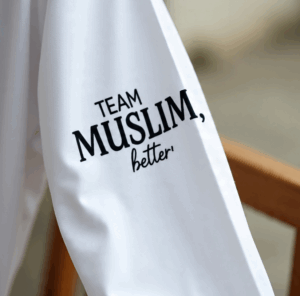15th SHABAAN – LAYLATUL BARA’AH
![]()
Hadhrat Aisha (Radhiyallahu anha) says that Nabi (Sallallaahu alaihi wasallam) said, “Allah descends to the Samaa-ud-Dunya (the first sky) on the fifteenth night of Sha‘baan and He Forgives more people than the number of hair on the goats of the Banu Kalb tribe.” (Tirmizi)
The Night…
The 15th night of Sha’baan is also called Laylatul-Baraa’ah which means the night of salvation or forgiveness because on this night Allah Ta’ala frees many Muslims from Jahannam. In one narration it is stated that Nabi (Sallallaahu alaihi wasallam) said, “…Allah Ta’ala forgives a large number of people more than the number of the fibres on the sheep of the tribe of Kalb.” (The tribe of Kalb had a huge number of sheep.)
This night is indeed a great and auspicious night to Muslims. This is a night in which Muslims resort to plenty of ‘Ibaadat of Allah Ta’ala. Tilaawat, Zikr, Durood Shareef, Du’a, Istighfaar and Nafl Salaah—Salaatut-Taubah, Salaatut-Tasbeeh and Salaatul-Haajat, are among the ‘Ibaadaat with which the Muslims honour this night.
Some Muslims spend half the night in any of the above ‘Ibaadaat. Yet other Muslims turn the ‘darkness’ of the entire night into ‘Noor’ with ‘Ibaadat. Allahu Akbar! Truly, this shows nothing but the Muhabbat (love) a Bandah (servant) of Allah Ta’ala has for his/her Rabb.
Why do Muslims exert themselves so much in ‘Ibaadat on this night?
The Hadith answers this question in which it is mentioned that Hazrat Ali Radiallahu unho said that Nabi Sallallaahu alaihi wasallam said, “When it is the 15th night of Sha’baan, stand in Qiyaam (Nafl Salaah) in the night, and fast in the morning, and ask for forgiveness (make Istighfaar), because on that night Allah Ta’ala descends to the Samaa-ud-Dunya (the first sky) from sunset and announces, ‘Is there anyone who is asking for forgiveness so that I can forgive them? Is there anyone who needs Rizq that I may give him Rizq? Who is in distress that I may relieve his distress?’ And this continues till the morning.” (Ibne Maajah)
On this great night, Allah Ta’ala decides regarding certain issues of everyone. Among the things which are decided, Nabi (Sallallaahu alaihi wasallam) said, “On this night the birth of those who will be born (till the following 15th Sha’baan) is written. The death of those who will pass away (till the following 15th Sha’baan) is written. On this night, the A’maal of everyone is risen (i.e. the books of deeds from the previous year’s 15th Sha’baan to this night are taken to the Heavens and new books are given to the angels who record our actions). On this night, (everyone’s) Rizq (sustenance, wealth etc.) is written.” (Baihaqi)
Therefore, one should engage in Nafl Salaah and Du’a and tell Allah Ta’ala of our hopelessness in our ‘Ibaadat and Itaa’at (obedience and following the Shari’ah) we displayed in our life, the sins we committed, the Haraam food we ate, the music we listened to, the Haraam TV we watched, the Haraam pictures we posed for, the Haraam selfies we took, the Haraam interest we were involved in, the Haraam dressing we wore—imitating soccer heroes in their style, fashion, clothing and haircuts and dressing like actors and actresses etc., the Haraam shows, fetes, souks we attended which were named with Islamic terms (Example: Pre-Ramadhan Fairs, Halaal Food Expos, Fashion Extravaganzas etc.) the Haraam wedding functions we attended and all other Haraam sins we were involved in. We should then ask Allah Ta’ala to grant us another chance so that we can live as good, obedient and faithful Muslims.
We should make a Niyah (intention) that we live by our word of being good, obedient and faithful Muslims. This includes that we will from today, change our wrongs, involvements of sins and disobedience of Allah Ta’ala. We will regard Haraam to be Haraam and stay far away from it. We will listen to Ulama-e-Haq who explain what is Halaal and what is Haraam.
A sign of accepted Taubah is that the person does not go back to that sin. Look at the Sahaabah’s Taubah when liquor was made Haraam. When it was announced that liqour has now become Haraam, at once they destroyed all their barrels and drums in which they used to store and transport liquor. To such an extent that the streets of Madinah Munawwarah were seen flowing with liquor!
Du’as for other permissible matters should be also made. Remember, Allah Ta’ala descends to the first heaven on this night which means that the Special Rahmat (Mercy) and Tawajjuh (Attention) of Allah Ta’ala are directed to us on this night.
Thus, with the hope of our Du’as being answered, one should make plenty of Du’as for our personal needs and difficulties. May Allah Ta’ala accept our broken ‘Ibaadaat of this night and overlook our shortcomings in carrying them out, Aameen.
There are other aspects regarding gatherings in the Masaajid on this night to listen to a Bayaan or Zikr which has become a new Bid’at these days, Insha Allah, in a future article we will mention some details about such gatherings,
The Hope…
As mentioned above, one should have hope that our Du’aas are accepted. Therefore, with hope of forgiveness one should put forth to Allah Ta’ala the weaknesses and sins we have openly, proudly and intentionally committed in our life. The cries, tears and meekness of everyone on this auspicious night will surely be heard in the Court of Allah Azza Wajal.
The Unfortunate Ones…
however, there are certain unfortunate souls who will not be forgiven on this blessed night. Various narrations shed light in pointing out some reasons for no forgiveness of such unfortunate souls. Among them are:
The one who commits Shirk.
The one who has malice for another.
The one who kills unjustly.
The one who severs family ties (without any Shar’ee basis).
The one who wears his trouser (or any garment) under his ankles (for males only).
The one who is disobedient to his parents.
The one who drinks alcohol.
If Taubah is not made from the above and one does not distance himself/herself from these and all other sins, one will be deprived of Allah’s Special Rahmat and Maghfirat on this night.
One should avoid the norm which is rife nowadays of calling and messaging people a day or two prior to this blessed night to ask for Maaf. However, hardly a few days pass and the same Zulm (oppression to people), severing of ties, disobeying parents and Gheebat (backbiting of people) etc. are committed. This is making a mockery of this auspicious night and of people. In fact, everyday one should have a good and clean heart towards everyone. This will avoid one from falling into sins as far as the rights of others are concerned. If we are really serious about making Taubah on the Night of the 15th Sha’baan, why not rather start off now, at this moment? Why wait?

The Night of Bara’ah
In order to observe the Night of Bara’ah, one should remain awakened in this night as much as he can. If someone has better opportunities, he should spend the whole night in worship and prayer. However, if one cannot do so for one reason or another, he can select a considerable portion of the night, preferably of the second half of it for this purpose, and should perform the following acts of worship:
1.Salah. Salah is the most preferable act to be performed in this night. There is no particular number of Rak’at but preferably it should not be less than eight. It is also advisable that each part of the Salah like qiyam, rukoo’ and sajdah should be longer than normal. The longest surahs of the Holy Qur’an one remembers by heart should be recited in the Salah of this night. If someone does not remember the long surahs, he can also recite several short surahs in one rak’ah.
2.Tilawa. The recitation of the Holy Qur’an is another form of worship, very beneficent in this night. After performing Salah, or at any other time, one should recite as much of the Holy Qur’an as he can.
3.Dhikr. One should also perform dhikr (recitation of the name of Allah) in this night.
a.One should recite Salah (durood) on Prophet Muhammad, Sall-Allahu alayhi wa sallam, as many times as he can. The dhikr can also be recited while walking, lying on bed and during other hours of work or leisure.
4.Dua. The best benefit one can draw from the blessings of this night is prayers and supplications. It is hoped that all the prayers in this night will be accepted by our Lord, insha-Allah. Prayer itself is an ‘Ibadah, and Allah Almighty gives reward on each prayer along with the fulfillment of the supplicator’s need. Even if the purpose prayed for is not achieved, one cannot be deprived of the reward of the prayer which is sometimes more precious than the mundane benefits one strives for. The prayers and supplications also strengthen one’s relation with Allah Almighty, which is the main purpose of all kinds and forms of worship.
One can pray for whatever purpose he wishes. But the best supplications are the ones made by Prophet Muhammad, Sall-Allahu alayhi wa sallam. These are so comprehensive and all-encompassing prayers that all the human needs, of this world and the Hereafter, are fully covered in the eloquent expressions used in them. Actually, most of the prophetic prayers are so profound that human imagination can hardly match their greatness.
The Day…
In the Hadith it appears that Nabi Sallallaahu alaihi wasallam desired that one fasts on the day of the 15th Sha’baan. Since our books of deeds of the previous year’s 15th Sha’baan to this year’s 15th Sha’baan will be closed and taken to the heavens and new books will be brought, let us open the new books with the reward of fasting to be recorded on the first page.
We ask Allah Ta’ala to guide us into obeying Him in a way which is pleasing to Him, Aameen.



